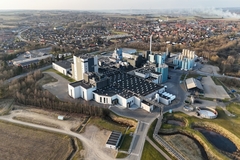
- Industry news
Industry news
- Category news
Category news
- Reports
- Key trends
- Multimedia
Multimedia
- Journal
- Events
- Suppliers
- Home
- Industry news
Industry news
- Category news
Category news
- Reports
- Key trends
- Multimedia
Multimedia
- Events
- Suppliers
Consumer Trends Boost Demand for BASF’s Carotenoid Colorants

While a U.S. warning label on food dyes was recently ruled out, the panel voted that certain children may be susceptible to them, and further research is necessary.

6/16/2011 --- Food colors – they can influence first impressions as consumers survey the store shelves, yet they are the last ingredient listed on product labels.
For years, manufacturers have relied on FD+C certified colors as safe, inexpensive, stable, and easily applied ways to create bright and appealing foods and beverages. However, recent events in the United States and Europe have generated some negative attention for certified colors. For example, the U.S. FDA Food Color Advisory Panel hearings held in March resulted in widespread media coverage. The goal of the panel was to determine if there is sufficient evidence to prove that food dyes impact children’s behavior. While a U.S. warning label on food dyes was ruled out, the panel voted that certain children may be susceptible to them, and further research is necessary.
These events are causing a shift in public perception. According to a recent Hartman survey (2010), 44 percent of consumers said they avoid food colors/dyes.
Instead of waiting for more scientific findings and regulatory action, major food manufacturers are taking the initiative now. More than 90 percent of drink developers say they will be using at least some natural flavors/ colors this year, accoridng to a report in Beverage Industry.
“The colorant landscape is changing, and manufacturers are asking for options,” said Dr. Joseph Moritz, Product Manager, Human Nutrition, BASF Corporation. “Our customers are designing premium products without certified dyes. Traditionally, BASF offered a wide range of nature-identical carotenoids in water dispersible powders for beverages and oils for foods. With the recent acquisition of Cognis’ portfolio of natural mixed carotenoids, we are now well-positioned to help our customers identify the colorant that best fits their needs – both natural and synthetic.”
“We know that color is a leading factor influencing a product’s appeal, and we offer options from virtually any shade of light yellow to orange to red. While appearance is critical, we recognize that our customers are also interested in nutritionally valuable colorants. Our objective is to deliver ingredients with valuable health benefits along with technical advantages including quality, performance and stability,” Moritz continued.
“With our expanded technical capabilities, we can guide our customers in color creation and optimization, in addition to identifying valuable claims for their products,” said Dr. Holger Becker, Global Betatene Product Manager, Human Nutrition, BASF Corporation. Dr. Becker pointed out that manufacturers opting for natural colorants such as BASF’s Betatene natural mixed carotenoids may include these labeling statements:
• A natural source of vitamin A (depending on level)
• Added color from natural-beta-carotene or Colored with natural beta-carotene
• Made with no synthetic colorants
He noted that Betatene natural mixed carotenoids meet consumers’ preference for natural ingredients. Sourced from marine algae grown in saltwater lakes in Australia, the carotenoids are harvested free of chemical solvents, and are carefully extracted and formulated using natural plant oils. Betatene provides a unique blend of carotenoids similar to that found in fruits and vegetables. While beta-carotene is the dominant carotenoid, also naturally present are alpha-carotene, lutein, zeaxanthin and crytoxanthin. Betatene is safe for use as a color in many foods, and has shown excellent stability in target applications.
Drs. Becker and Moritz are meeting with food and beverage manufacturers nationwide to introduce the expanded capabilities of the new BASF colorant team and explain how they can serve as a “one-stop” source from advice on color selection, from nutritional information on the health benefits, to marketing guidance on labeling. In addition to these services, they offer BASF’s S.E.T. initiative, which allows manufacturers to obtain traceability information and measure sustainability throughout their entire value chains.










